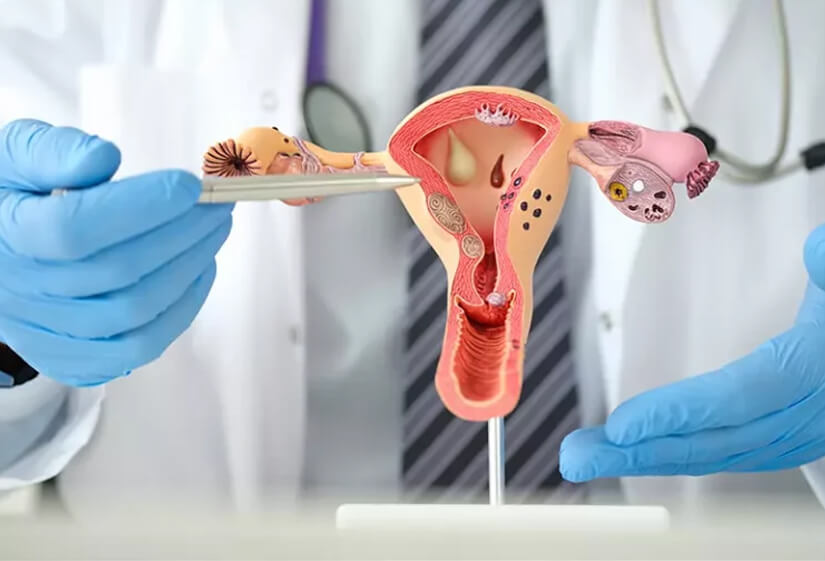Menopause is a significant life event that marks the end of a woman’s reproductive years. It’s a natural biological transition, but it comes with a variety of physical, emotional, and psychological changes that can affect women in many ways. From hot flashes and sleep disturbances to mood swings and weight gain, navigating menopause can feel overwhelming. However, with the right strategies and support, women can manage the symptoms effectively and embrace this new phase of life with confidence and vitality.
In this article, we explore the top 10 menopause support strategies for long-term success, backed by expert insights and research. These approaches focus on holistic well-being, combining lifestyle changes, nutritional guidance, and stress management techniques to create a well-rounded strategy for managing menopause.
1. Balanced Nutrition for Hormonal Health
One of the most effective ways to support yourself during menopause is through a balanced diet. Hormonal changes during menopause can lead to fluctuating energy levels, weight gain, and increased risk of chronic conditions like osteoporosis and heart disease. A diet rich in whole foods, including plenty of vegetables, fruits, lean proteins, and healthy fats, can help alleviate these symptoms and support long-term health.
Particular nutrients to prioritize include:
-
Calcium and Vitamin D: Essential for bone health, as estrogen decline during menopause leads to bone density loss.
-
Omega-3 fatty acids: Found in fatty fish, flaxseeds, and walnuts, omega-3s help reduce inflammation and support heart health.
-
Phytoestrogens: Plant-based compounds found in foods like soy, flaxseeds, and lentils that mimic estrogen’s effects in the body and may help manage hot flashes.
A nutrition plan focused on these elements can ensure that your body has the tools it needs to adapt to menopause and maintain optimal health.
2. Exercise for Mental and Physical Health
Regular physical activity is a cornerstone of menopause support. It not only helps mitigate symptoms like weight gain, hot flashes, and fatigue but also supports bone density and mental health. Strength training, aerobic exercises, and yoga can all provide significant benefits during this time.
-
Strength training helps combat muscle loss, which accelerates as estrogen levels drop. It also supports bone health by increasing bone density.
-
Aerobic exercises, such as walking, swimming, or cycling, can improve cardiovascular health and help manage stress.
-
Yoga and Pilates promote flexibility, balance, and mental well-being, which are vital for managing stress and improving sleep.
Aim for at least 30 minutes of moderate exercise most days of the week to support your physical and mental health throughout menopause.
3. Mindfulness and Stress Management
The hormonal fluctuations during menopause can contribute to heightened stress and anxiety. Practicing mindfulness, meditation, and deep breathing exercises can help mitigate these emotional symptoms. Mindfulness-based stress reduction (MBSR), for instance, has been shown to significantly improve mental well-being, reducing anxiety and depression while enhancing emotional regulation.
By taking time each day to engage in calming activities, such as meditation, journaling, or progressive muscle relaxation, you can create a sense of peace and balance that helps you navigate the emotional aspects of menopause.
4. Sleep Hygiene for Restorative Sleep
Sleep disturbances are a common symptom during menopause, with many women experiencing difficulty falling asleep or staying asleep due to night sweats, hot flashes, or racing thoughts. Good sleep hygiene can significantly improve the quality of sleep during this transitional phase.
To improve your sleep, consider these strategies:
-
Establish a consistent sleep schedule: Go to bed and wake up at the same time each day.
-
Create a relaxing bedtime routine: Engage in relaxing activities like reading or a warm bath before bed.
-
Limit screen time: Avoid electronics at least an hour before sleep to reduce blue light exposure, which can interfere with your body’s production of melatonin.
-
Keep the bedroom cool: Reducing room temperature can help manage hot flashes and night sweats.
If sleep issues persist, consider talking to a healthcare provider who may recommend cognitive behavioral therapy for insomnia (CBT-I) or other treatments.
5. Herbal Remedies for Symptom Relief
Many women turn to herbal remedies for relief from menopause symptoms. While scientific research is still ongoing, certain herbs have shown promise in alleviating symptoms like hot flashes, night sweats, and mood swings. Some popular options include:
-
Black cohosh: Known for reducing hot flashes and night sweats, black cohosh is one of the most studied herbs for menopause.
-
Red clover: Contains phytoestrogens and may help alleviate hot flashes.
-
Ashwagandha: Known for its adaptogenic properties, it may help reduce stress and improve sleep quality.
Before using any herbal supplements, it’s essential to consult with a healthcare provider, as some herbs may interact with medications or have side effects.
6. Bioidentical Hormone Replacement Therapy (BHRT)
For women experiencing severe menopause symptoms that affect their quality of life, bioidentical hormone replacement therapy (BHRT) can be an effective option. BHRT uses hormones that are chemically identical to those the body naturally produces. This therapy aims to alleviate symptoms such as hot flashes, night sweats, mood swings, and vaginal dryness.
Unlike traditional hormone replacement therapy (HRT), which may use synthetic hormones, BHRT is often touted for its personalized approach, as doses and types of hormones are tailored to the individual’s needs. However, it’s important to work closely with a healthcare provider to assess the benefits and risks of BHRT.
7. Support Groups and Therapy
Menopause can feel isolating, but you are not alone. Joining a support group or engaging in therapy can be instrumental in providing emotional support. Support groups, whether online or in-person, allow you to connect with other women who are going through similar experiences. Sharing stories and coping strategies can alleviate feelings of isolation and help you realize you’re not facing this transition alone.
If you’re struggling with anxiety, depression, or other emotional issues related to menopause, speaking with a therapist or counselor who specializes in women’s health can provide valuable tools to manage your mental and emotional well-being.
8. Regular Health Checkups
Regular health checkups are crucial during menopause to monitor any changes in your body and address any health concerns early on. Women going through menopause are at higher risk for conditions like osteoporosis, heart disease, and diabetes. Regular checkups allow your healthcare provider to track vital health metrics, such as:
-
Bone density: Regular screenings can help identify early signs of osteoporosis.
-
Cholesterol and blood pressure: Menopause increases the risk of cardiovascular issues, so it’s essential to monitor these regularly.
-
Blood sugar levels: Hormonal shifts can also affect metabolism, making women more susceptible to insulin resistance and diabetes.
Ensuring that you stay on top of your health during menopause can help prevent future health problems and maintain a high quality of life.
9. Hydration for Skin and Overall Health
During menopause, many women notice changes in their skin, including dryness, thinning, and loss of elasticity. Staying hydrated is essential not just for skin health, but for overall well-being. Drinking plenty of water throughout the day helps maintain skin moisture, flush out toxins, and support organ function.
Additionally, using a hydrating skincare routine with ingredients like hyaluronic acid can help lock in moisture and keep skin looking fresh and radiant.
10. Embrace the Change: Mindset Matters
One of the most important aspects of navigating menopause is having a positive and open mindset. Menopause is not an end, but rather a natural part of life. Embracing this transition with self-compassion and patience can help reduce stress and improve overall well-being.
By reframing menopause as an opportunity for personal growth and empowerment, you can approach this phase of life with confidence and vitality. Focus on the strengths you’ve gained over the years, and recognize that this is a time to prioritize yourself and your health.
Conclusion
Navigating menopause is a multifaceted experience that requires attention to physical, emotional, and mental health. By adopting a holistic approach, including balanced nutrition, exercise, stress management, and personalized treatments like herbal remedies or hormone therapy, women can embrace menopause as a time of empowerment and self-care. These advanced strategies for menopause support are designed to foster long-term success, helping women feel healthy, strong, and confident throughout this transformative phase of life.




